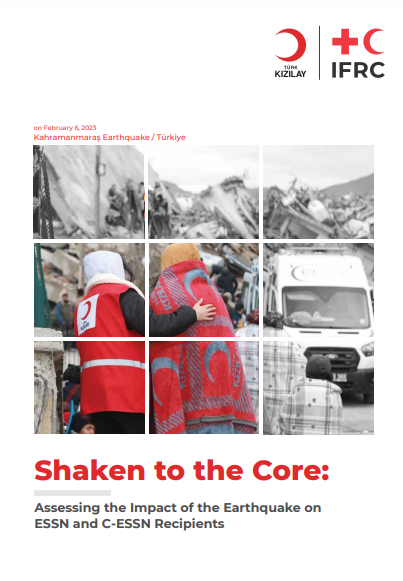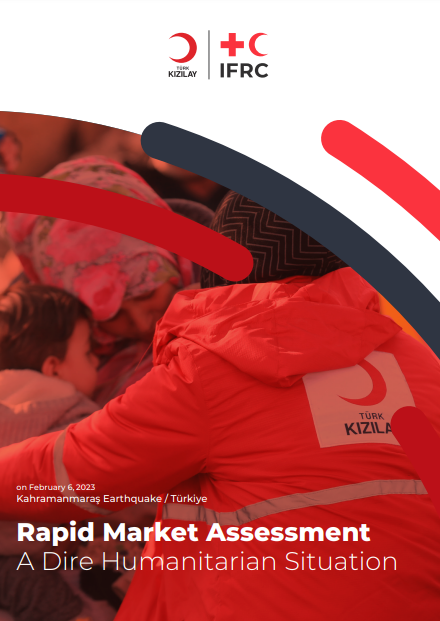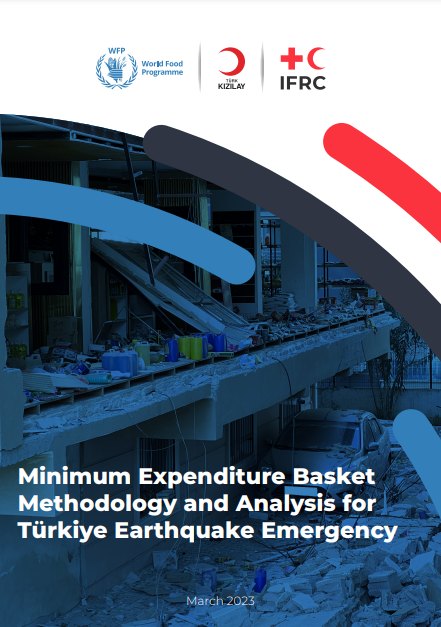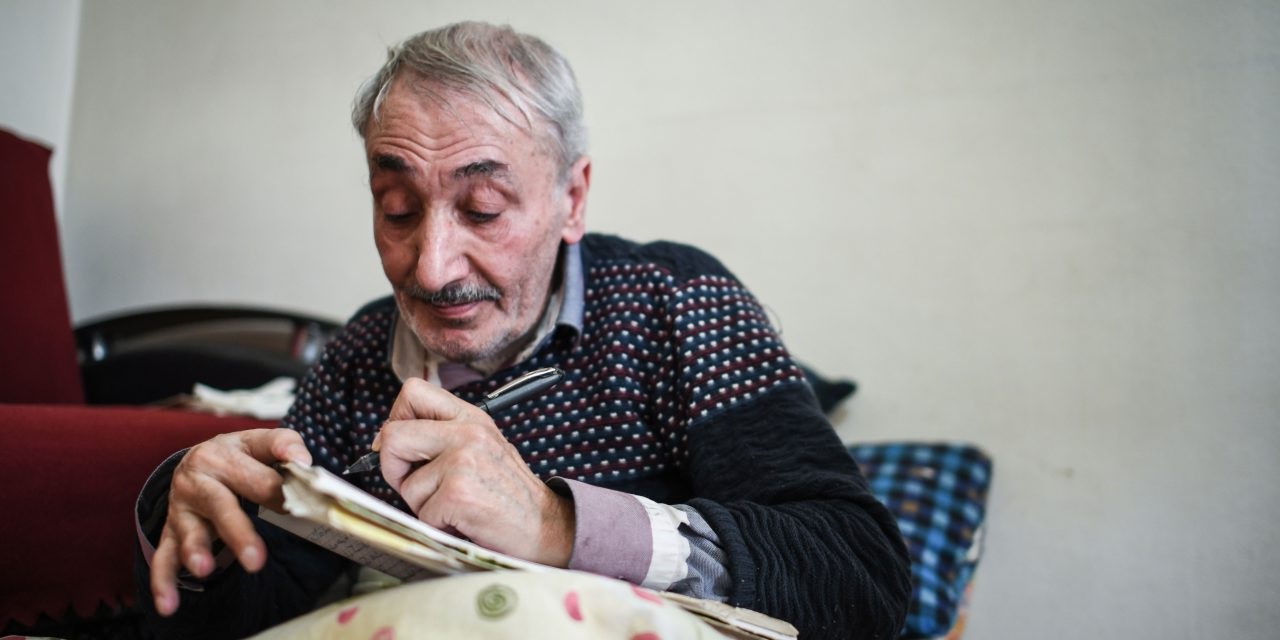Country pages
Cash in Türkiye
Learning from the Turkish Red Crescent’s comprehensive humanitarian cash programmes in Türkiye
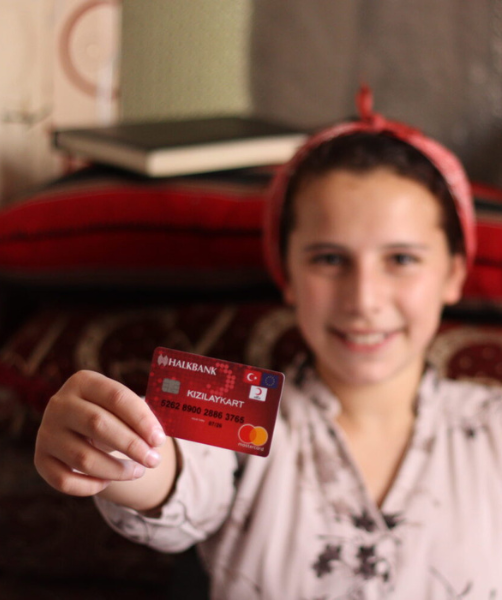
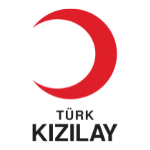
The Turkish Red Crescent (Türk Kızılay) has been at the forefront of large-scale humanitarian cash programming for the last decade. Its sector-leading Kızılaykart Platform enables simultaneous implementation of multiple cash assistance programmes, through the ‘Kızılaykart’ (debit card).
A series of cash assistance programmes are currently supporting vulnerable adults and children living under Temporary Protection, International Protection (applicant status and status holder) or Humanitarian Residence Permit in Türkiye, along with those affected by the 2023 Kahramanmaraş earthquakes.
Find further information and resources on the Kızılaykart cash-based assistance programmes here: (EN) (TR)
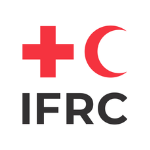
From 2020 to 2023 the Turkish Red Crescent and the IFRC, with funding from the European Union, implemented the Emergency Social Safety Net (ESSN) – which was the largest humanitarian cash programme in the world.
Via the ESSN, more than 1.5 million refugees living in Türkiye received regular monthly cash assistance, enabling people to decide for themselves how to cover their essential needs such as food, rent, medicine, transport and other bills. In 2023 the programme was handed over to the Turkish Ministry of Family and Social Services, who continue implementing the now renamed Social Safety Net (SSN) programme in partnership with the Turkish Red Crescent.
Click here to access the IFRC Go Platform Dashboard for Turkiye
ESSN Learning Exchange
In December 2023 the IFRC and Türk Kızılay organised an Emergency Social Safety Net (ESSN) Learning Exchange event, with the support of the Cash Hub. The event, held in-person in Ankara and attended by remote participants online, was a part of proceedings marking the formal conclusion and handover of the ESSN.
The overall aim of the Learning Exchange was to use experience from ESSN implementation to contribute to the broader body of knowledge on humanitarian emergency cash and social protection programming.
Key sessions looked at the ESSN journey since its inception in 2016; community engagement and accountability (CEA) in large-scale CVA programming; innovative uses of data supporting ESSN design and implementation; programme adaptability and shock responsiveness; the value of positive campaigning via lessons from the ESSN’s unique story telling project; and at enablers for the successful implementation of a large-scale nexus programme.
Find out more here
ESSN Learning Hub: all the key resources produced by Türk Kızılay and the IFRC
ESSN monthly reports: key programmatic highlights
Kahramanmaraş Earthquake response: Find the latest resources
After the earthquake: Rapid Market Mapping and Minimum Expenditure Basket (MEB) analysis

22 November 2020
Adapting to New Normal: Remote Focus Group Discussions During COVID-19
Type:
ResearchOrganization:
Turkish Red CrescentWithin the scope of Kızılaykart programmes, Focus Group Discussions (FGDs) are being conducted by the households themselves or Turkish Red Crescent Community Centers where available. Due to the outbreak of COVID-19 and its related health risks, face to face FGDs could not be carried out as usual. Therefore, to enable a quick response to the pandemic situation, the current modality for FGDs has been adapted to minimise the impact of COVID-19 and to ensure the uninterrupted continuity of monitoring activities.
22 October 2020
ESSN Rumour Tracking & Management System: Vol. 1 (April – October 2020)
Type:
LearningOrganization:
ECHO, IFRC, Turkish Red Crescent (Türk Kızılay)This report captures questions and feedback about the rumours with regards to the Emergency Social Safety Net project. Information has been gathered from eligible and ineligible populations, which will create better understanding of the information gaps, needs and rumours and ultimately, help to address them before they can do any harm.
28 August 2020
Livelihood Transition of the ESSN – Capacity Mapping and understanding the potential
Type:
ResearchOrganization:
IFRC, Turkish Red Crescent (Türk Kızılay)In December 2018, Facility for Refugees in Turkey (Frit) Office published its transition strategy from basic needs to livelihoods for the ESSN programme. The M&E team of Türk Kızılay conducted a Capacity Mapping Exercise in March 2019 to provide an overview of individuals receiving assistance as a starting point to design livelihood programmes.
15 August 2020
Adapting to new normal during COVID-19
Type:
InfographicOrganization:
Turkish Red Crescent (Türk Kızılay)Covid-19 restrictions are a blocker for Monitoring and Evaluation activities. As a replacement to household visits and community meetups, the Turkish Red Crescent needed an innovative solution to continue Focus Group Discussions (FGDs). That solution came in the form of remote and virtual FGDs through video calls to maintain the activities running amid covid-19 while keeping the beneficiaries and staff safe.
21 July 2020
Turkey’s Refugee Resilience: Expanding and Improving Solutions for the Economic Inclusion of Syrians in Turkey
Type:
ResearchOrganization:
UNDPThis report provided an updated analysis of the situation to date and of results achieved by various actors so far in facilitating socio-economic inclusion of Syrians, expands the range of solutions currently available, notably on private-sector engagement and digital livelihoods opportunity, and shares policy recommendations on how to make the most out of the positive impact of the refugee presence, and increase the impact of ongoing and future programming.
3 June 2020
Survey on the Impact of COVID-19 on Enterprises in Turkey (11-22 May 2020)
Type:
ResearchOrganization:
Business for GoalsThis reports is based on the results of a second survey to assess the impact of COVID-19 on enterprises. The survey was administered online over the nationwide network of TURKONFED and TUSIAD. A total of 619 enterprises that participated in the survey responded to 26 questions about the impact of COVID-19, their prediction about evolution of the crisis and the kind of measures they need. The same questionnaire was administered to Syrian-owned enterprises through the UNDP which elicited responses from 32 enterprises.
Page 4 of 8


